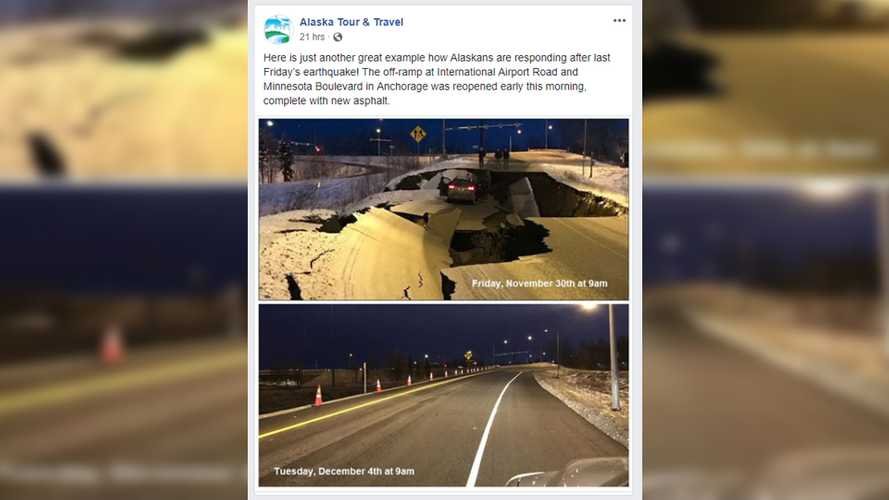While us car-crazy folks were enamored with the new vehicle debuts last week at the Los Angeles Auto Show, a massive 7.0-magnitude earthquake struck Alaska. The epicenter was beneath the Anchorage – the state's largest city – and caused no small amount of damage to buildings as well as roadways. Alaskans will be the first to speak of their resilience and ability to bounce back from a crisis, but these photos from Alaska Tour & Travel on Facebook prove it.
In less than a week, the state's road repair crews have already made significant progress in getting the automotive infrastructure back in shape. In fact, the progress is borderline witchcraft when you look at the comparison above. This was a highway off-ramp in Anchorage that took severe damage, and we do mean severe with cracks and deep holes spanning over 150 feet. This stretch of roadway was cleaned up, filled, repaved, and is now open to the public. Amazing.
We're all acutely aware of just how long road work can take, so how is this even possible? According to an article at KPIX in San Francisco – an area that's certainly well-acquainted with earthquakes – it comes down to manpower and money. Projects that might ordinarily be slated for months at a lower cost are condensed into projects spanning just days, and contractors with the skill and experience to get it done step up to the challenge. Also, being an emergency situation, new funding streams are made available because such expertise doesn't come cheap.
There's a bit more to it than just money, however. An article at The New Tribune explains some of the special challenges involved with road repair in cold weather. Additional chemicals are used in the asphalt mix, and it's layered differently so it doesn't cool too quickly. Also, it should be noted that some road repairs are just temporary patch jobs that will be revisited in warmer weather.
Still, bravo to Alaska and its repair crews for setting an awesome example for the rest of the world.
Related News



